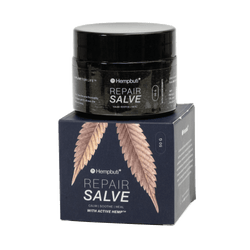Hey, sleepyhead. I see you. Staring at the ceiling at 3 AM, counting sheep that have long since gone on strike. That little bottle of sleeping pills on your nightstand starts to look like your best friend, promising to whisk you away to dreamland. But what if that promise comes with a hidden, and hefty, price tag?
Millions of people reach for sleeping pills hoping for a quick fix for their restless nights. What often starts as an occasional aid can quickly spiral into a nightly necessity, bringing a host of side effects that are often worse than the sleeplessness you were trying to escape. So, let's pull back the covers and talk about what’s really going on when you pop that pill.
The "Hangover" You Didn't Sign Up For
One of the most common complaints from sleeping pill users is the dreaded "hangover effect". You might technically get your eight hours, but you wake up feeling mentally foggy, sluggish, and like you're moving through invisible molasses. This isn't just about feeling a bit tired; it can seriously impair your ability to drive, focus at work, and perform tasks that require concentration, sometimes well into the afternoon.
Beyond simple drowsiness, these medications can mess with your cognition. Many users report issues with memory, slowed thinking, and difficulty concentrating. It's a trade-off that doesn't seem quite fair—sacrificing your daytime clarity for a night of chemically induced rest.
Short-Term Annoyances vs. Long-Term Risks
The effects of sleeping pills aren't a one-size-fits-all problem. They can range from mild daily issues to severe long-term health concerns.
| Short-Term Side Effects | Long-Term Side Effects |
|---|---|
| Drowsiness and lightheadedness | Risk of dementia and Alzheimer's disease |
| Headaches and nausea | Potential for depression or mood changes |
| Dry mouth or throat | Sexual dysfunction |
| Gastrointestinal issues like constipation or diarrhea | Increased risk of falls and fractures, especially in older adults |
| Impaired coordination and balance | Physical and psychological dependence |
The Dependency Trap and Scarier Side Effects
Perhaps the most frightening aspect is how quickly your body can get used to these drugs. This is known as tolerance, and it's a slippery slope. The dose that once worked its magic no longer does, pushing you to take more to get the same effect.
Soon after, physical and psychological dependence can set in. Your body starts to believe it cannot sleep without the pill. If you try to stop, you can face "rebound insomnia," which is often far more intense than your original sleep problems, along with anxiety and tremors.
Then there are the truly alarming, albeit rarer, side effects called parasomnias. These are complex behaviors you perform while not fully awake, like sleep-walking, sleep-eating, making phone calls, or even sleep-driving. People have reported engaging in these activities with zero memory of them the next day, which is a terrifying thought.

Reclaiming Your Nights, Naturally
Okay, I know this all sounds pretty bleak. But the goal isn't to scare you; it's to empower you! Understanding these risks opens the door to exploring safer, more sustainable ways to get the rest you deserve.
Here are a few places to start:
-
Master Your Sleep Hygiene: Create a sleep sanctuary! This means a consistent sleep schedule (yes, even on weekends), a cool, dark, and quiet bedroom, and a relaxing pre-sleep routine like reading or taking a warm bath.
-
Cognitive Behavioral Therapy for Insomnia (CBT-I): This is the gold standard for treating insomnia. It's a structured program that helps you identify and replace the thoughts and behaviors that are sabotaging your sleep.
-
Explore Natural Alternatives: Gentle aids like melatonin, magnesium, or CBD might offer support for occasional sleeplessness without the harsh side effects and dependency risks of prescription pills.
Before you decide to stop any prescribed medication, it's crucial to talk to your doctor to create a safe plan for tapering off. They can help you navigate withdrawal and find an alternative that truly works for you. Sleeping pills can have a place in short-term, acute situations, but they aren't a long-term solution. It's time to seek a healthier, more natural path to a good night's sleep.









